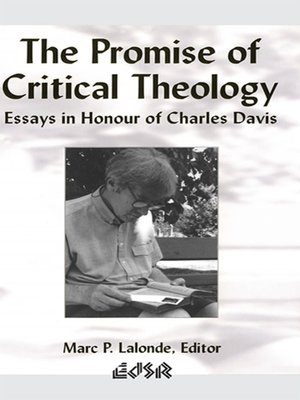The Promise of Critical Theology
ebook ∣ Essays in Honour of Charles Davis · Editions SR
By Marc P. Lalonde

Sign up to save your library
With an OverDrive account, you can save your favorite libraries for at-a-glance information about availability. Find out more about OverDrive accounts.
Find this title in Libby, the library reading app by OverDrive.



Search for a digital library with this title
Title found at these libraries:
| Library Name | Distance |
|---|---|
| Loading... |
Written in tribute to one of the foremost Catholic theologians in the English-speaking world, the essays in The Promise of Critical Theology address the question: Can critical theology secure its critical operation without undermining its foundation in religious tradition and experience? Is "critical theology" simply an oxymoron when viewed from both sides of the equation?
From Marc Lalonde's introductory essay which delimits Davis' fundamental position, that the primary task of critical theology is the critique of religious orthodoxy, the essays examine Davis' distinction between faith and belief and build upon the promise of critical theology as inextricably bound to the promise of faith. They ask: What is its promise? What particular religious ideas, themes, stories are appropriate for its concrete expression? How can the community of faith receive its transformative message? What might be the contribution of other religious traditions and philosophies?
Essays by Paul Lakeland, Dennis McCann, Kenneth Melchin, Michael Oppenheim and Marsha Hewitt respond to these and other questions and critically relate Davis' work to ongoing developments in modern theology, critical theory, philosophy and the social sciences. Their diversity attests to the comprehensive scope of Davis' thought and exemplifies the progressive character of contemporary religious discourse. They honour Davis and illuminate the promise of critical religious thinking in itself.







